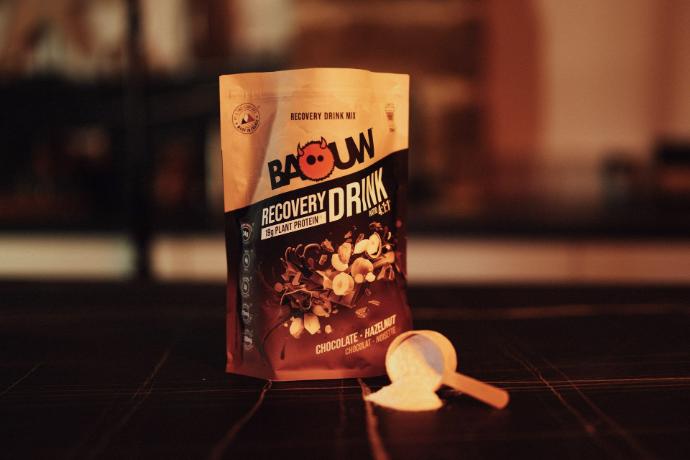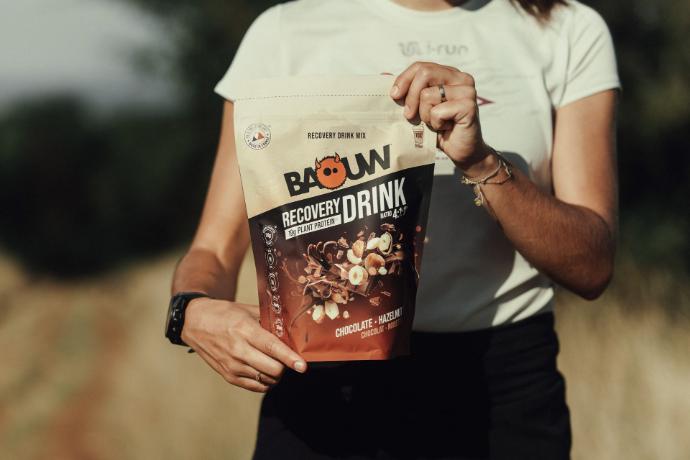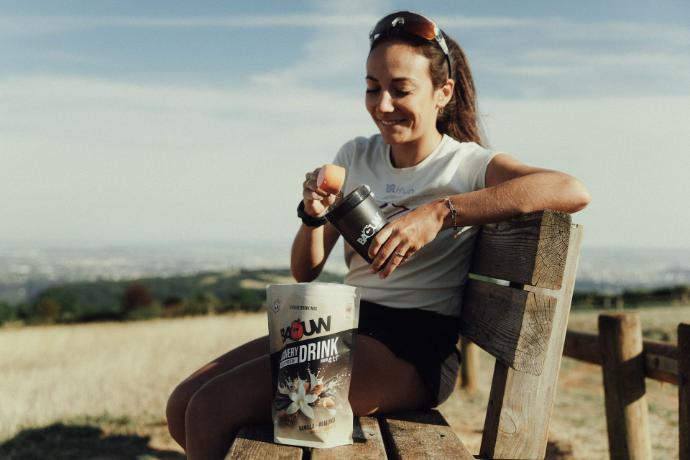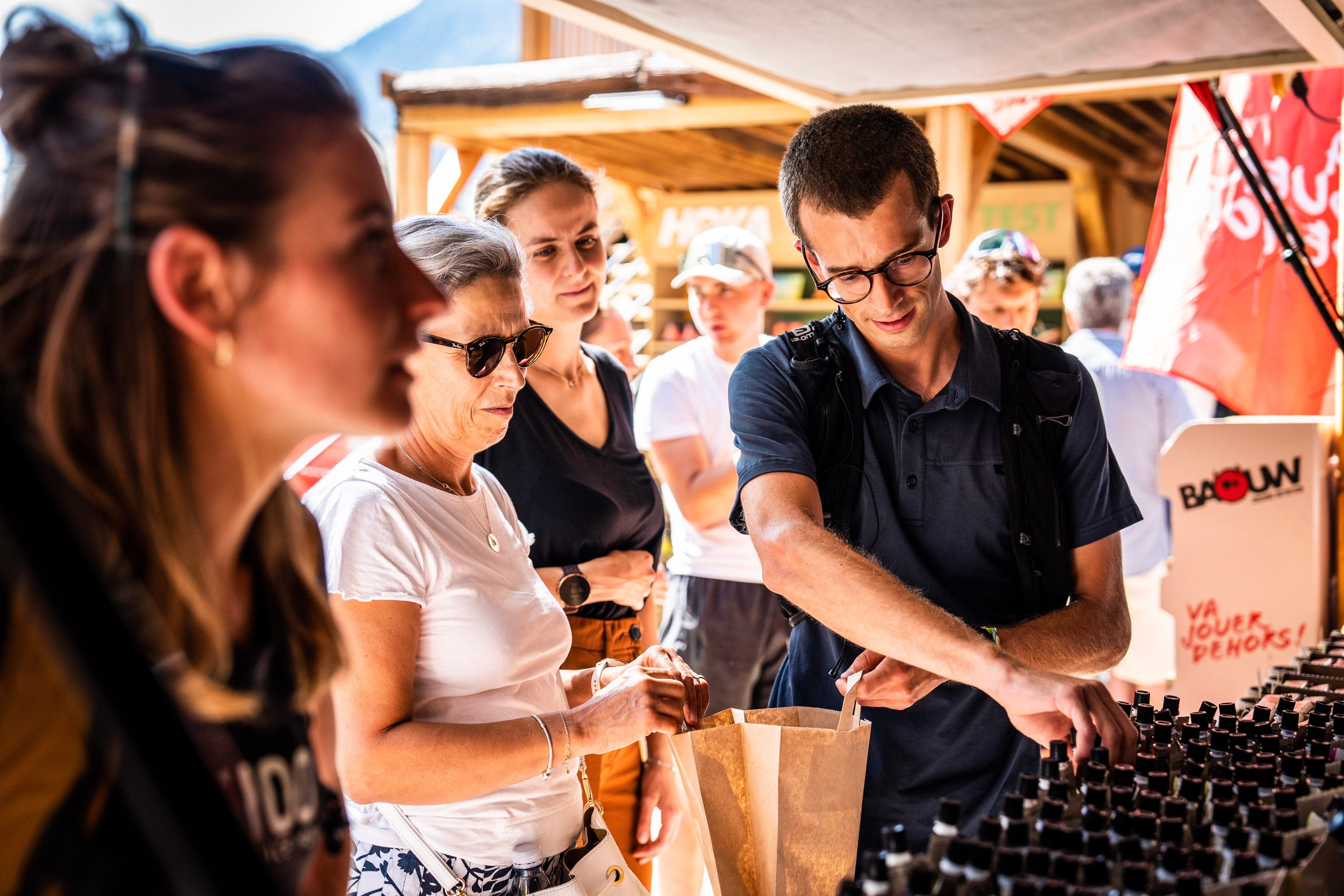The recovery drink, or your best ally after a long run, marathon or interval training session that has drained your reserves! It is precisely to boost your recovery after exercise that the Baouw team has developed its new protein drink for sport, which complements our ‘hydration’ range alongside our energy drinks and hydration tablets.
To understand the purpose of our recovery drink, here is an overview of its properties, composition and how best to use it!
In practical terms, what is a recovery drink?
As its name suggests, a recovery drink is a drink formulated for post-exercise consumption. As such, it mainly combines simple carbohydrates to replenish muscle and liver glycogen, proteins and BCAAs to promote repair and maintain muscle mass, as well as electrolytes to restore fluid balance after sweating.
The goal for endurance runners, cyclists and triathletes is to restore energy levels as quickly as possible and optimise recovery between two efforts. But at Baouw, we don't do things by halves, so we've added a few extra touches to our recovery drink recipe that make all the difference! Whether you choose our chocolate protein drink or its vanilla version, you'll also be giving your body an ideal dose of minerals, marine collagen, vitamins and antioxidants. Finally, it's worth noting that our recovery drinks are formulated with plant-based proteins, chosen for their effectiveness, digestibility and micronutrient content. The result is a simple, optimal protein drink!
Why is a special recovery drink important for endurance sports?
Endurance sports place high demands on carbohydrate reserves. When these reserves are low, the ability to maintain intensity declines and feelings of fatigue persist for longer. This is where a ‘during + after’ strategy comes into its own (isotonic drink during exercise, recovery drink afterwards), as it helps you to:
- replenish your glycogen stores more quickly,
- limit performance loss in subsequent sessions,
- reduce the impact of muscle damage and DOMS (delayed onset muscle soreness) when protein is included in the formula.
All these reasons make energy drinks an integral part of preparing and planning for endurance training!
Focus on composition: what should a good recovery drink contain?
Les glucides, fer de lance du sportif
What do our recovery drinks and energy drinks have in common? A high content of good carbohydrates! For exercise lasting longer than 60/90 minutes, your priority becomes glycaemic restoration. Whether it's cassava maltodextrin or cane sugar, the fast-absorbing carbohydrates in Baouw recipes are there to help you replenish your reserves quickly. That's done!
Muscle fibre repair: the mission of the plant proteins in our full recovery drinks
Consuming protein after exercise accelerates the repair of muscle fibres that have been put under strain during intensive training. Recovery drinks are particularly useful if you are doing several sessions in quick succession or if the exercise has been very intense (hill runs, sprints, strength training... you decide!). In short, they help you get back on your feet quickly!
Electrolytes and hydration: a powerful duo for peak performance
In the wonderful family of electrolytes, I want sodium! Why? Because it is the key electrolyte for promoting water retention and compensating for sweat loss. Potassium and magnesium reinforce this formula, which is designed to support healthy nerve and muscle function. In other words, an effective recovery drink takes on the role of these minerals: essential after heavy sweating.
What about the carbohydrate/protein ratio for a recovery drink worthy of the name?
For endurance athletes, a carbohydrate to protein ratio of around 3:1 to 4:1 is often recommended: enough carbohydrates to replenish glycogen, with a portion of protein for repair. However, it is important to note that this ratio is not set in stone, as that would be far too simplistic: it must be adapted to the athlete's weight, the duration of the effort and the objectives (rapid recovery vs. optimal maintenance of mass), but it is a rule of thumb widely used by sports dieticians.
When should you reach for your recovery drink?
Ideally, protein drinks should be consumed within 30 to 60 minutes after exercise to optimise glycogen replenishment and protein synthesis, especially if the next meal is not due for a while. That said, this window is wider than previously thought: your overall nutritional status for the day remains a determining factor. This means that you can consume your recovery drink within 15 minutes to 2 hours (the latter being the absolute maximum!) after your workout.
For endurance athletes, recovery drinks are a welcome boost that is simple, practical and effective for optimising the rest of your training session. Pay particular attention to its composition (especially the carbohydrate/protein ratio and electrolyte content) and when you consume it: these factors make the difference between a mediocre recovery and one that allows you to string together high-quality sessions. Get your trainers on!

latest details on recovery drinks
Does a recovery drink replace a meal?
Under no circumstances should recovery drinks be used as a meal replacement: they simply aid the post-exercise phase. A full meal (complex carbohydrates, protein, fat, vegetables) is still recommended in the hours following your event or training session.
Should I drink different beverages depending on whether I am running or cycling?
Once again, the answer is no. The need to repair muscle fibres after exercise and replenish your glycogen stores is just as real after a trail run as it is after a cycle race. Whatever your discipline, your body needs the trio of carbohydrates, proteins and electrolytes once you cross the finish line!
Is it useful if I only exercise for 45 minutes?
After 45 minutes of moderate exercise, a light protein intake and adequate hydration may be sufficient. Recovery drinks become more relevant when exercise is prolonged or repeated.









